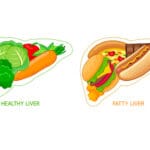The ketogenic diet, or keto diet, has gained widespread popularity for its potential to help with weight loss, improved energy levels, and better management of certain health conditions. However, if you’re considering the keto diet and have a history of gout, it’s essential to understand how this high-fat, low-carb eating plan might impact your condition. In this article, we will explore the relationship between the keto diet and gout, discussing its potential benefits, drawbacks, and what you need to know to make an informed decision.
What is Gout?
Gout is a form of inflammatory arthritis characterized by sudden, severe pain, redness, and swelling in the joints. It typically affects the big toe but can occur in other joints as well. The condition is caused by an accumulation of uric acid in the blood, which can crystallize in the joints, leading to painful flare-ups.
Key Points about Gout:
- Uric Acid Buildup: Uric acid is a waste product that forms when the body breaks down purines, substances found in certain foods and drinks.
- Dietary Influence: Diet plays a crucial role in managing gout. Foods high in purines, such as red meat, shellfish, and sugary beverages, can increase uric acid levels.
- Risk Factors: Factors like genetics, obesity, and certain medical conditions can increase the risk of developing gout.
Understanding the Keto Diet
The keto diet is a low-carbohydrate, high-fat diet that encourages the body to enter a state of ketosis. In ketosis, the body burns fat for energy instead of glucose from carbohydrates. This metabolic shift can lead to various health benefits, including weight loss, improved blood sugar control, and increased mental clarity.
Key Components of the Keto Diet:
- High Fat: About 70-80% of your daily caloric intake comes from fats.
- Moderate Protein: Protein makes up about 20-25% of your daily intake.
- Low Carbohydrates: Only about 5-10% of your daily intake comes from carbohydrates.
How Keto Diet Might Benefit Gout Sufferers
Weight Loss:
- Impact on Gout: Obesity is a known risk factor for gout. The keto diet’s potential to promote weight loss can help reduce the frequency and severity of gout attacks.
- Mechanism: Losing weight can decrease the production of uric acid in the body, lowering the risk of gout flare-ups.
Improved Insulin Sensitivity:
- Impact on Gout: Insulin resistance, often associated with type 2 diabetes, can contribute to elevated uric acid levels. The keto diet may improve insulin sensitivity, thereby helping to manage uric acid levels.
- Mechanism: By reducing carbohydrate intake, the keto diet lowers insulin levels, which can reduce uric acid production.
Reduction in Inflammation:
- Impact on Gout: Gout is an inflammatory condition, and the keto diet’s anti-inflammatory effects could potentially help manage symptoms.
- Mechanism: The diet emphasizes healthy fats like omega-3 fatty acids, found in fish and nuts, which are known to reduce inflammation.
Potential Drawbacks of the Keto Diet for Gout
Increased Uric Acid Production:
- Concern: The keto diet can lead to an initial increase in uric acid levels, especially during the early stages of ketosis. This may trigger gout flare-ups in some individuals.
- Mechanism: As the body transitions into ketosis, it breaks down fat stores, releasing ketones. This process can temporarily raise uric acid levels, leading to gout symptoms.
Dehydration and Electrolyte Imbalance:
- Concern: The keto diet can lead to dehydration, a known trigger for gout attacks. As carbohydrate intake is reduced, the body loses more water and electrolytes, which can exacerbate gout symptoms.
- Mechanism: Lower insulin levels on the keto diet cause the kidneys to excrete more sodium and water, increasing the risk of dehydration.
High Purine Content in Some Keto-Friendly Foods:
- Concern: Some foods commonly consumed on the keto diet, such as red meat, organ meats, and certain fish, are high in purines. This can increase uric acid levels and potentially trigger gout attacks.
- Mechanism: Purines are metabolized into uric acid in the body, so a diet high in purines can elevate uric acid levels.
Balancing the Keto Diet with Gout Management
If you have gout and are considering the keto diet, it’s essential to approach it with caution and consider the following strategies:
Stay Hydrated:
- Why It Matters: Drinking plenty of water helps flush out uric acid from the body, reducing the risk of gout attacks.
- Tip: Aim for at least 8-10 glasses of water per day, and consider adding electrolyte supplements if needed.

Monitor Uric Acid Levels:
- Why It Matters: Regularly checking your uric acid levels can help you gauge how your body is responding to the keto diet.
- Tip: Work with your healthcare provider to monitor your uric acid levels, especially during the initial stages of the diet.
Choose Low-Purine Keto Foods:
- Why It Matters: Opting for low-purine foods can help minimize the risk of gout flare-ups while still following the keto diet.
- Tip: Focus on keto-friendly vegetables, dairy products, and healthy fats like avocados and olive oil.
Gradual Transition:
- Why It Matters: A sudden switch to the keto diet can lead to a rapid increase in ketone and uric acid levels, potentially triggering gout.
- Tip: Consider gradually reducing carbohydrate intake to allow your body to adjust more smoothly.
Consult with a Healthcare Professional:
- Why It Matters: A healthcare professional can provide personalized advice based on your medical history and current health status.
- Tip: Before starting the keto diet, discuss your plans with a doctor or dietitian who understands gout.
Sample Keto Diet Plan for Gout Sufferers
To help you get started, here’s a sample keto diet plan that emphasizes low-purine foods while still adhering to the principles of the ketogenic diet:
Breakfast:
- Scrambled eggs cooked in olive oil with a side of avocado slices.
- A handful of spinach sautéed in coconut oil.
- Herbal tea or black coffee.
Lunch:
- Grilled chicken breast with a large salad of mixed greens, cucumber, and bell peppers.
- Dressing made from olive oil, lemon juice, and a sprinkle of herbs.
- A serving of Greek yogurt (unsweetened).
Snack:
- A handful of almonds or walnuts.
- A few slices of cucumber or celery sticks.
Dinner:
- Baked salmon with a side of steamed broccoli and cauliflower.
- A drizzle of melted butter over the vegetables.
- A small serving of full-fat cottage cheese.
Dessert:
- A small serving of berries (such as strawberries or raspberries) with a dollop of whipped cream.
Hydration:
- Throughout the day, drink plenty of water, and consider adding a pinch of sea salt to maintain electrolyte balance.
Final Thoughts
The keto diet offers several potential benefits for individuals with gout, particularly in terms of weight loss and improved insulin sensitivity. However, it also comes with certain risks, such as increased uric acid levels and dehydration, which could exacerbate gout symptoms. By carefully planning your diet, staying hydrated, and working closely with a healthcare professional, it’s possible to follow the keto diet while managing gout effectively.
Before making any significant dietary changes, especially if you have a medical condition like gout, it’s essential to consult with your doctor. They can provide guidance tailored to your specific needs and help you navigate the complexities of balancing the keto diet with gout management.
References
- Choi, H. K., & Curhan, G. (2005). “Gout: Epidemiology and lifestyle choices.” Current Opinion in Rheumatology, 17(3), 341-345. doi:10.1097/01.bor.0000164538.18440.87
- Paoli, A., Rubini, A., Volek, J. S., & Grimaldi, K. A. (2013). “Beyond weight loss: A review of the therapeutic uses of very-low-carbohydrate (ketogenic) diets.” European Journal of Clinical Nutrition, 67(8), 789-796. doi:10.1038/ejcn.2013.116
- Dessein, P. H., Shipton, E. A., Stanwix, A. E., Joffe, B. I., & Ramokgadi, J. (2000). “Beneficial effects of weight loss associated with moderate caloric and carbohydrate restriction on the metabolic syndrome in patients with obesity and gout: A pilot study.” Annals of the Rheumatic Diseases, 59(7), 677-683. doi:10.1136/ard.59.7.677


